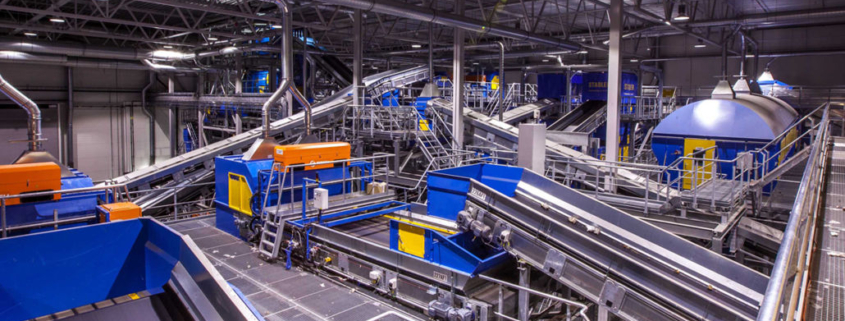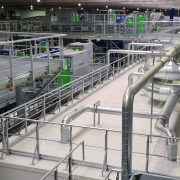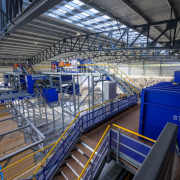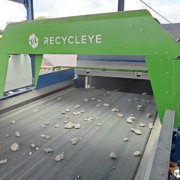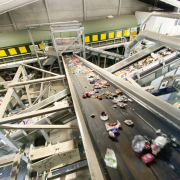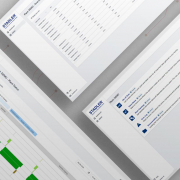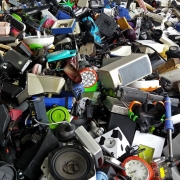Advanced Sorting Technologies for the Nordic Markets
German-based Stadler Anlagenbau GmbH is a global leader in recycling and sorting plant solutions. With advanced technologies, specialized expertise, and tailored solutions, the company supports the Scandinavian countries’ efforts to achieve their ambitious recycling and circular economy goals.
Nordic countries are globally recognized as leaders in sustainability, with some of the most advanced waste management and recycling systems. However, meeting ever-evolving environmental targets, improving efficiency, and tackling the challenges of cost, automation, and innovation require continuous technological advancements. Stadler, specialized in sorting systems and waste management solutions, brings its experience, technology, and understanding of the different Nordic markets to help customers stay ahead of these challenges. “The Nordic markets demand solutions that are not only technologically advanced but also aligned with their strong environmental ethos,” Jürgen Berger, Head of International Sales at Stadler Anlagenbau GmbH, was cited. “With a strong track record in the region, we understand the specific needs of our customers and provide high-quality, future-proof solutions that help them maximize material recovery, improve operational performance, meet ambitious recycling targets, and deliver long-term value.”
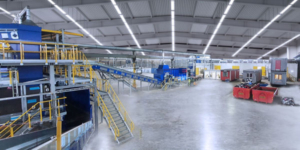 Nordic countries have set high environmental goals, requiring waste management solutions prioritizing resource efficiency, carbon neutrality, and circular economy principles. According to the German machine manufacturer, the company provides “state-of-the-art sorting plants that leverage advanced technologies, including Artificial Intelligence, the Internet of Things, and robotics to optimize material recovery and minimize waste, contributing to a circular economy”.
Nordic countries have set high environmental goals, requiring waste management solutions prioritizing resource efficiency, carbon neutrality, and circular economy principles. According to the German machine manufacturer, the company provides “state-of-the-art sorting plants that leverage advanced technologies, including Artificial Intelligence, the Internet of Things, and robotics to optimize material recovery and minimize waste, contributing to a circular economy”.
Finland
An example is the Materials Recovery Facility (MRF) in Finland, developed in collaboration with Remeo Oy. This facility, located in the Greater Helsinki Region, incorporates AI technology, advanced processes, and a high level of automation to recover materials from both Commercial & Industrial (C&I) and Construction & Demolition (C&D) waste. With an annual capacity of up to 180,000 tons, it supports Helsinki’s recycling needs and contributes to Finland’s recycling rate of 70 percent. “This project underscores the role of automation and intelligent sorting technology in enhancing the circular economy,” the mechanical engineering company emphasized.
Denmark
While Nordic countries share a common sustainability ethos, each market presents distinct challenges, different regulatory frameworks and cultural expectations. In Denmark, Stadler partnered with Dansk Retursystem to create an automated high-capacity plant to process PET bottles and aluminum cans collected through the country’s advanced deposit return system. “The high level of automation and flexibility of this plant ensures extremely efficient recycling of cans and bottles and is a shining example of a successful private-public collaboration for a circular economy,” the provider underscored.
Norway
In Norway, which focuses on reducing plastic waste and encouraging advanced recycling techniques, Stadler’s collaboration on the ROAF MSW sorting plant near Oslo has set a new standard for municipal waste management. “This fully automated facility sorts mixed household waste, recovering plastics and bio-waste using advanced optical sorting technology. With long-term goals of achieving a 70 percent recycling rate by 2030, the facility has already improved recycling rates significantly.” In December 2024, Stadler was awarded a contract by IVAR IKS to design and install a new MSW sorting plant in Stavanger, further enhancing Norway’s recycling capabilities. This upcoming facility, which will have a processing capacity of up to 40 tons of waste per hour, is projected to be completed by spring 2027. The German engineering firm’s work with Veolia PET Norge AS in Fetsund is another example of its expertise in plastic recycling. “The high-performance sorting system for PET beverage bottles from take-back systems integrates screening and advanced sorting technologies, ensuring high purity and efficiency, meeting Norway’s high standards for efficiency and sustainability.”
Sweden
Stadler is also able to deliver solutions tailored to specific market needs. An example is located in Sweden, where textile recycling is gaining importance. The company delivered “the world’s first fully automated textile sorting plant in Malmö, addressing a major gap in textile recycling. The facility uses near-infrared (NIR) technology to separate different textile fibers, enabling efficient recycling and supporting the transition to a circular economy in the fashion and textile industries.”
After-sales support and customer focus
As underlined by Stadler, the company is committed to providing after-sales support, ensuring long-term reliability and operational efficiency for its customers. Its strong local presence in the Nordic markets would allow it to offer tailored maintenance services, rapid response times, and in-depth knowledge of regulatory requirements and market trends. The company’s dedication to customer service has earned praise from clients across the region, including Jan Ostendarp, Head of PET Technology at Veolia. “In our relationship with Stadler, we have always been impressed by the high quality and efficiency of its solutions, as well as the excellent collaboration before, during and even after installation,” he was quoted.
(Published in GLOBAL RECYCLING Magazine 2/2025, Page 11, Photos: Stadler)

